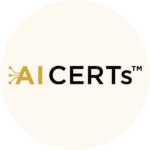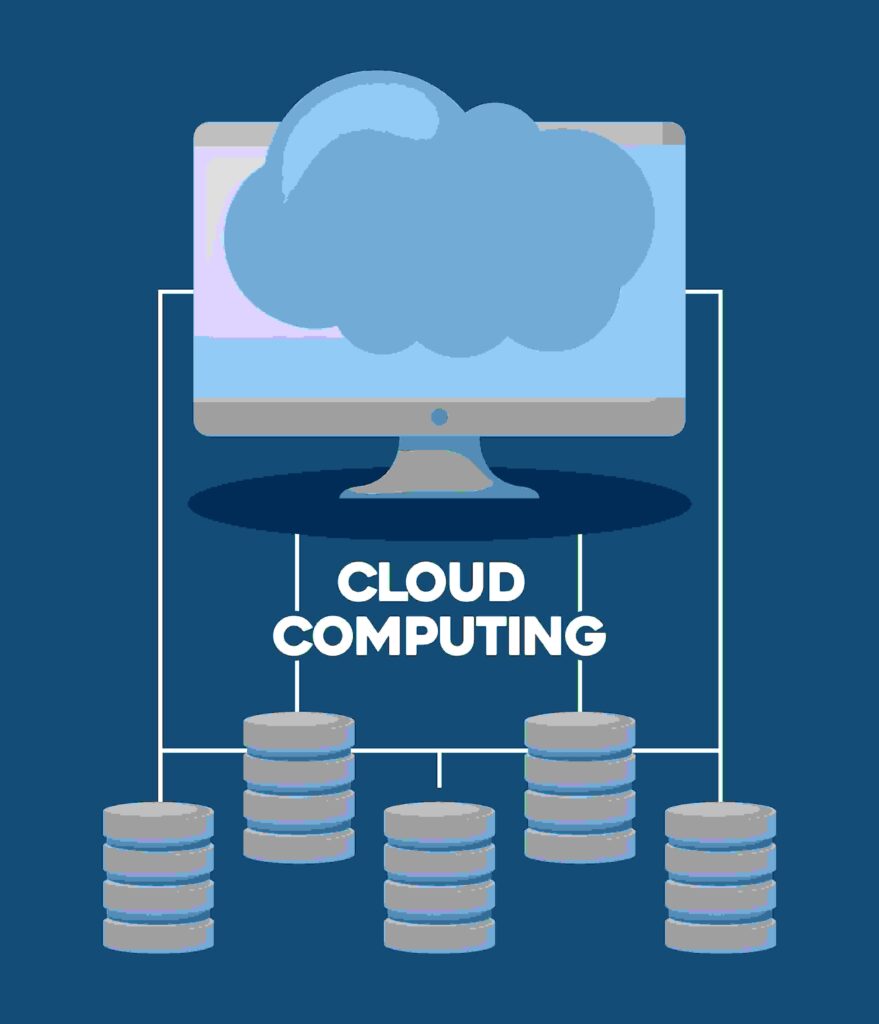
AI CERTS
5 months ago
Learn AI Cloud Systems: Unlock the Power of Artificial Intelligence in the Cloud
Artificial Intelligence (AI) and cloud computing are two transformative technologies that, when combined, drive innovation, scalability, and efficiency. Businesses worldwide are adopting AI cloud systems to streamline operations, improve decision-making, and enhance customer experiences. Whether you're an IT professional, a developer, or a tech enthusiast, learning AI cloud systems can open doors to new opportunities and equip you with the skills to stay ahead in the digital era.
This article explores the importance of AI cloud systems, the essential skills for mastering them, real-world applications, and the benefits of integrating AI with cloud computing.

What Are AI Cloud Systems?
AI cloud systems leverage cloud computing platforms to deliver AI-powered solutions. These systems enable businesses to harness the capabilities of machine learning, natural language processing (NLP), and predictive analytics at scale. By utilizing cloud infrastructure, organizations can deploy AI tools and services without investing heavily in hardware or software, making advanced AI accessible to businesses of all sizes.
Some key features of AI cloud systems include:
- Scalability: Handle increasing workloads without compromising performance.
- Cost-Effectiveness: Reduce upfront infrastructure costs through pay-as-you-go models.
- Data Integration: Seamlessly manage and analyze vast amounts of data stored in the cloud.
- Real-Time Insights: Deliver actionable intelligence in real time.
Related Reading: For an in-depth look at AI cloud systems, explore AWS’s AI and ML services.
Why Learn AI Cloud Systems?
As businesses continue to adopt AI cloud systems, professionals with expertise in these technologies are in high demand. Here’s why learning AI cloud systems is essential:
1. Stay Competitive in the Job Market
Industries across sectors are implementing AI cloud systems to enhance efficiency and productivity. Gaining expertise in these systems can set you apart in a competitive job market and lead to opportunities in cloud computing, AI development, and IT management.
2. Drive Innovation in Business
AI cloud systems enable businesses to innovate by developing smarter products and services. Professionals who understand these systems can help organizations harness AI to improve decision-making and streamline operations.
3. Solve Complex Problems
With AI cloud systems, you can tackle complex challenges by analyzing large datasets, identifying patterns, and automating processes. These skills are invaluable for organizations seeking data-driven insights.
Key Skills for Mastering AI Cloud Systems
To effectively learn AI cloud systems, it’s essential to develop the following skills:
1. Cloud Platform Proficiency
Familiarize yourself with leading cloud platforms like Amazon Web Services (AWS), Microsoft Azure, and Google Cloud. These platforms offer AI services for machine learning, big data analytics, and more.
2. Machine Learning and AI Fundamentals
Understanding the basics of machine learning, neural networks, and deep learning is critical for deploying AI models on the cloud.
3. Data Engineering and Storage
Learn how to manage, process, and store large datasets in the cloud. Tools like Google BigQuery and Amazon S3 are widely used for this purpose.
4. Automation and Scalability
Develop skills to automate cloud operations using tools like Kubernetes and Terraform, ensuring efficient scaling of AI workloads.
5. Ethical AI and Data Privacy
Master the principles of ethical AI and compliance with data protection regulations like GDPR and CCPA. This ensures responsible use of AI cloud systems.
Real-World Applications of AI Cloud Systems
AI cloud systems are driving change across industries, providing scalable solutions to complex challenges. Here are some practical applications:
1. Healthcare
AI cloud systems analyze patient data to assist in diagnostics, recommend treatments, and predict health trends. Cloud platforms also enable telemedicine services by supporting real-time video consultations and electronic health record sharing.
2. Finance
Financial institutions use AI cloud systems for fraud detection, risk assessment, and customer personalization. For example, AI models deployed in the cloud analyze transaction patterns to flag suspicious activities.
3. Retail
In retail, AI cloud systems power personalized recommendations, optimize supply chains, and enhance customer experiences through chatbots and virtual assistants.
4. Manufacturing
AI cloud systems enable predictive maintenance by analyzing machine data, reducing downtime and operational costs.
Related Reading: Explore how AI is transforming industries in TechCrunch’s report on AI
Benefits of Learning AI Cloud Systems
Mastering AI cloud systems offers numerous benefits, both for individuals and organizations:
1. Enhanced Career Opportunities
AI cloud expertise is in high demand, opening up roles in cloud engineering, data science, and AI development.
2. Scalable Solutions
AI cloud systems allow businesses to scale their operations efficiently, making them a vital skill for IT and operations professionals.
3. Data-Driven Decision Making
With AI cloud systems, professionals can uncover actionable insights, enabling data-driven strategies and innovation.
4. Cost-Effective Implementation
Learning how to optimize AI cloud systems can reduce operational costs for businesses by eliminating the need for extensive infrastructure investments.
External Resource: For more on how cloud systems enhance scalability, check out Forbes’ article on cloud
Challenges and Ethical Considerations
While AI cloud systems offer significant advantages, they also present challenges that learners must address:
1. Data Privacy and Security
Storing sensitive data in the cloud raises concerns about security breaches. Professionals must learn to implement robust security measures.
2. Environmental Impact
Cloud computing can consume significant energy, impacting sustainability. Adopting green cloud strategies can mitigate this.
3. Algorithm Bias
AI models trained on biased datasets can produce skewed results. Understanding bias mitigation techniques is essential.
The Future of AI Cloud Systems
AI cloud systems are set to drive technological innovation, with emerging trends shaping their development:
- Edge AI: Combining AI and edge computing to process data locally, reducing latency.
- Hybrid Cloud Solutions: Integrating private and public cloud systems for greater flexibility.
- AI-Enhanced DevOps: Automating deployment, monitoring, and maintenance using AI-driven tools.
Professionals who invest time to learn AI cloud systems will be at the forefront of these advancements, playing a crucial role in shaping the future of technology.